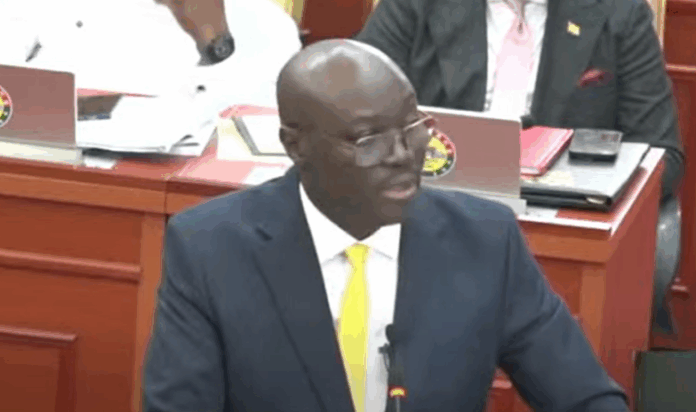A Professor of Finance and Economics at the University of Ghana, Charles Godfred Ackah, has delivered a sobering assessment of the 2025 Mid-Year Budget, describing it as statistically sound but lacking in real solutions for job creation and long-term economic resilience.
Speaking on JoyNews’ PM Express Business Edition on Thursday, Prof. Ackah questioned the depth of the government’s economic vision.
“The statistics are showing some good performance,” he acknowledged. “If you measure them in the context of normal, orthodox economics, you will see a reduction or some form of consolidation. Fiscal consolidation has been achieved in terms of the primary surplus and inflation trending down, exchange rate stabilising.”
However, he cautioned that behind the positive indicators lie deeper concerns.
“So I think that is good to some extent,” he said. “But you have to ask yourself, at what cost? What is our vision as a nation? What do we want to achieve?”
Prof. Ackah noted that if the goal is simply to generate strong statistics, then the government may deserve credit.
“If it’s just to appear to be achieving some good statistics, then I think we should give congratulations to the managers of the economy.”
But he warned that impressive data alone is not enough.
“If the bottom line, or the vision, is to create jobs, to build a competitive, resilient economy, to improve the welfare of the Ghanaian, to reduce poverty and inequality, then I don’t think this Mid-Year Budget Review gives any excitement.”
According to him, the positive performance hailed in the budget largely reflects favourable global conditions rather than domestic policy strength.
“If you look at what has actually happened, I think it’s mainly resulting from the external sector. Because of the increase in gold production and export of gold, we are getting a lot of external advantage from there in terms of foreign exchange revenue. Also, cocoa is doing well in terms of the price, and the oil price has stabilised.”
He cautioned against mistaking short-term gains for lasting progress.
“All of these are giving us some windfall to which the managers of the economy could claim advantage and sit, purely as a result of their own doing, as we normally do.”
Referencing past economic cycles, Prof. Ackah said Ghana has been in similar positions before.
“We have seen this before. If you look at the 2013 budget, 2014 budget, 2015 budget, when President Mahama was still there, we recorded some 2.8% budget surplus.”
He concluded with a warning: without deliberate action to build a shock-resistant economy, Ghana remains at risk.
“If we don’t prefer to build a resilient economy, it is susceptible to shocks. And if the gold prices fall all of a sudden, crude oil price goes above the roof all of a sudden, then we will be back to square one.”
Abubakar Ibrahim
ALSO READ:



